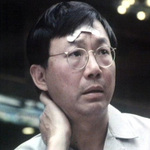
Michael Hui
There is no doubt that Michael Hui is one of the true innovators in Hong Kong cinema history. Born in 1942, Hui began his career on to television in the 1970's, with a small role on the show "Quiz Master" that Hui took only to help pay his college bills, where he was studying in psychology with hopes of becoming a politican. The popularity of Hui's "man on the street" bits convinced producers to give him his own show, where he hosted a variety hour along with his brother, Sam. The show was a hit, and so Michael was signed to a contract with the Shaw Brothers studio.
Hui soon tired of the Shaw's restrictive system, and set off on his own. In 1974, Hui starred, co-wrote, and directed in "Games Gamblers Play", a film that resonated with Hong Kong audiences not only for its' liberal use of entertainment and cultural references, but, more importantly, for its' use of Cantonese and its' slang. The Cantonese dialect was all but forgotten by Hong Kong film studios at this point, but "Games Gamblers Play" proved that there was indeed an audience.
Hui enjoyed a string of successful movies in the mid to late 1970's, most notably "The Private Eyes", which featured another brother, Ricky. At this point, Michael seemed to become one of Hong Kong's most popular actors and directors. He was even invited by American producers to appear alongside Jackie Chan in "The Cannonball Run". However, soon after that, Michael and his writing partner Sam parted ways.
This led to a bit of a change in Hui's movies. They still featured heavy Cantonese wordplay, but didn't seem as "true" to local audiences, and, as such, his films faced diminishing box office returns. Nevertheless, Hui pushed forward, still working on about a movie a year. But by the end of the decade, it was clear that HKers preferred Stephen Chow's "moy len tau" style of comedy, and Hui's style seemed a bit old-fashioned to many.
During the 1990's, Hui grew increasingly tired of the grind of the film business. He announced his retirement in 1997, but has been coaxed back into small roles on television and movies a few times in recent years.
Notable movies: Games Gamblers Play, The Private Eyes, Fantasia
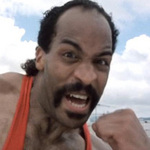
Michael Woods
Notable as one of the only African-Americans to make appearances in multiple Hong Kong films, Michael Woods is a former Navy Seal who studied kung fu in Boston with Donnie Yen's mother. As it became more popular to use foreigners in HK productions in the 1980's, Donnie remembered his mother being impressed with Woods, and so Yen invited him to Hong Kong. After appearing in about a half-dozen movies, Woods seems to have retired from the entertainment business, though he has helped out Donnie on some western productions like "Blade II".
Notable movies: Tiger Cage, Tiger Cage II, In the Line of Duty 4
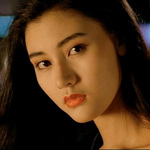
Michelle Reis
Born in Macau of Chinese and Portuguese descent, Michelle Reis gained entrance into the Hong Kong entertainment circle by winning the 1988 Miss Hong Kong pageant. As per usual for the contest's winners, she was given a contract to TVB (a Hong Kong television station) and by 1990, she made her film debut with "A Chinese Ghost Story II".
Like many actresses coming from a modeling background, Reis was usually cast as a sidekick or a damsel in distress with a squeaky-clean image. Even though she was enjoying success in this mode, starring with big actors like Jet Li and Brigitte Lin, Reis wanted to break free of the "jade vase" image and so took on darker roles, most notably with 1995's "Fallen Angels". This gave her credibility with critics, but not with producers, and so Reis found her offers dwindling. Still, she continued to work for the next few years, alternating between arthose and popcorn fare, until leaving the film business in 2003.
Notable movies: A Chinese Ghost Story II, Swordsman 2, Fong Sai Yuk, Fallen Angels
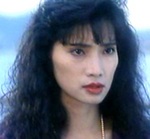
Michiko Nishiwaki
Michiko Nishiwaki first gained the attention of Hong Kong producers by winning multiple bodybuilding titles in the 1980's, which was a rarity for Japanese women at the time. She soon became a mainstay of the "girls with guns" genre, but also found herself appearing in more mainstream productions such as "God of Gamblers".
Even though Michiko was held in high regard by both actors and directors for her strong work ethic and talent, the drop in HK productions during the early 1990's led to a vast reduction in the roles she was offered. In 1993, along with her husband and child, Michiko moved to America, where she still occasionally does stunt work, most notably as Lucy Liu's double in the "Charlie's Angels" films.
Notable movies: God of Gamblers, My Lucky Star, In the Line of Duty III
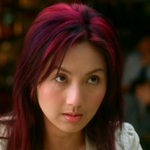
Miriam Yeung
Currently one of the top female stars in Hong Kong, Miriam Yeung began her career in 1995 as a singer after winning a contest. Like many pop stars, this soon led to an acting career, with 1998's "The Group". Her initial outings didn't fare well, and so she decided to concentrate on singing until 2001, where she appeared in "Dummy Mommy Without a Baby", which was a huge hit in Hong Kong and cemented her acting career.
Since then, Yeung has appeared in about twenty movies, with most of them being romantic comedies like the "Love Undercover" series. She has also branched out a bit into more dramatic roles, most notably in 2004's "Dumplings". Even though Miriam's fame continues to puzzle many people, a lot of whom consider her to be an imitation of Sammi Cheng, the box office returns on her films guarantee Miriam will be around for the forseeable future.
Notable movies: Love Undercover, Feel 100% II, Dumplings
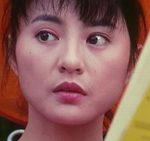
Moon Lee
Moon Lee trained in ballet before joining the RTV televsion studio after she graduated high school in 1980. Soon after, Lee made her film debut with 1981's "To Sir with Troubles". Lee's good looks quickly had her becoming one of the most sought-after supporting actresses in Hong Kong, and in 1983, she gained her biggest role to date with "Zu: The Warriors from the Magic Mountain". "Zu" allowed Lee to showcase her talents in the action department, which were aided immensely by her dancing background, and she became friends with Yuen Biao and Sammo Hung.
These friendships led to increasingly high-profile roles, and by 1987, she was a leading lady with "Angel", which many people consider a seminal film of the "girls with guns" genre. The juxaposition of Lee's "cutie-pie" looks and hard-hitting moves made her a fan favorite, and she appeared in over two dozen productions during the next few years. As the popularity of the genre petered out and her on-set injuries built up in the early 1990's, Lee retired from acting to open up a dance school in Hong Kong. In the last few years, she has gotten married and moved to America.
Notable movies: Zu: The Warriors from the Magic Mountain, Angel, Mr. Vampire
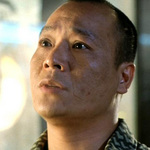
Ng Chi Hung (aka Frankie Ng)
Ng Chi Hung is often cast as a Triad, and for good reason -- he was in a gang until he got married at age 28 and his wife convinced him to drop out of "the life". Ng had a few friends in the film business (Triads often provide on-set "security" for many HK productions) and so began to do odd jobs around movie sets. In 1986, on the set of "Prison on Fire", director Ringo Lam took note of Ng's tough-guy looks, and the rest, as they say is history.
During the Triad movie boom of the 1980's and 1990's, Ng not only appeared on-screen in many roles, but also worked behind the scenes as a consultant, most notably on the popular "Young and Dangerous" series. Even though he will probably forever be known for his work in that genre, Ng has also delved into comedy and horror pictures, and has also branched out into producing films. Several years ago, like many in Hong Kong, Ng ran into financial trouble after the local real estate market collapsed, but seems to have recovered, and still works regularly on films.
Notable movies: Prison on Fire, Young and Dangerous, You Shoot I Shoot
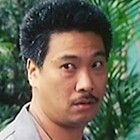
Ng Man-Tat
Though he is best known for being Stephen Chow's sidekick in many films, Ng Man-Tat (aka "Uncle Tat") is actually a well-rounded actor who has been working in Hong Kong films of all genres for over thirty years. In the reverse of the path most Hong Kong actors take, Ng actually started in movies with a few small roles before moving over to television in the early 1980's. Ng worked in both mediums, switching between serious crime dramas and screwball comedies, and finding a bit of success all around, though he wasn't necessarily a star.
All that changed in 1990. Ng proved his dramatic chops by winning a Hong Kong Film Award for "A Moment of Romance", and on the comedic side, he struck box office gold by appearing alongside Stephen Chow in "All for the Winner". Of course, in money-concious Hong Kong, the dollar wins out, and so Ng was tapped more for comedy roles over the next few years, with the most famous being those he did with Chow, in a partnership that continues to this day. In recent times, Ng's output has slowed down considerably from its' peak of sixteen films in one year, but even at the age of 56, there's no signs that he plans to retire anytime soon.
Notable movies: A Better Tomorrow II, God of Gamblers, Shaolin Soccer
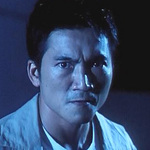
Ngai Sing (aka Collin Chou)
Born in Taiwan in 1967, Ngai Sing (who now goes by his birth name of Collin Chou) began his movie career in the late 1980's as part of Hung Ga Ban, the prestigous stunt team lead by Sammo Hung. Most of Ngai's roles have casted him as a villain, but he has dabbled in playing heroic roles as well. He was farily prolific during the 1990's, especially towards the end of the decade -- in 1999, he appeared in six films. After that, his output slowed down a bit, and he seemed destined to never become a true star.
But his fortunes changed in 2003 when he was tapped by Yuen Woo-Ping to participate in the sequels to "The Matrix", and has found himself working steadily on both sides of the ocean since. In particular, his work alongside Donnie Yen in the final fight of "Flash Point" has been noted as some of the best action to come out of Hong Kong over the past decade.
Notable movies: The Matrix Reloaded, Flash Point, My Father is a Hero
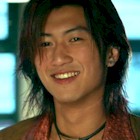
Nicholas Tse
A hugely popular singer and actor, Nicholas Tse is perhaps just as notable for his actions off the screen than his work on it. Born in 1980, Tse spent most of his childhood in Canada and the US, but was still well-known in Hong Kong due to the fame of his parents, Patrick Tse and Deborah Li, so it was perhaps inevitable that young Nic would also join the entertainment circle. He first delved into music, where his good looks and smooth voice made him an instant star. In 1998, Tse made his film debut with "Young and Dangerous: The Prequel", for which he took home the Best New Artist trophy from the Hong Kong Movie Awards.
Unlike a lot of other Hong Kong "idols", Tse seems to be very careful in picking his film roles, sometimes making only one appearance a year, which is a very small amount for the industry. Some would say it is because he wants to concentrate on his music career, some would say it is because he is being selective, but many wager it is because of his frentic life away from the set, which the rabid Hong Kong tabloids are only too willing to display for the public.
From the start, Tse's career has been embroiled in controversy, such as him dating the older actress/singer Faye Wong, seemingly dumping a reckless driving charge onto his chauffeur, outwardly blasting the HK entertainment "machine" in interviews, and most recently having nude pictures of his wife, actress Cecelia Cheung, leaked onto the intenet. Even considering all of this, Tse's talent and star power seems strong enough that even the notoriously fickle local fans are willing to forgive and forget.
Notable movies: Young and Dangerous: The Prequel, Gen-X Cops, New Police Story
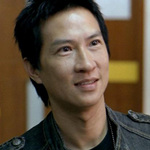
Nick Cheung
Nick Cheung was a policeman before trying his hand at acting at the TVB studios in the late 1980's. Cheung eventually met up with Danny Lee, who respected the authenticity Cheung brought to his work, and so Lee invited Cheung to come work for his Magnum production company in 1989 with "Thank You Sir". Cheng worked on several Magnum films before being cast in Wong Jing's 1993 film "Raped by an Angel". Though this was a dramatic role, Cheung's work with Wong would take a much more comedic turn.
Wong had parted ways with Stephen Chow, but still wanted to have someone of Chow's style in his stable, so many of Cheung's films over the next decade had him basically doing an imitation of Chow, which didn't fly with many fans, but still managed to provide solid box office returns. In 2004, Cheung's career went back to the dramatic side of things when he worked with Johnnie To on "Breaking News", and that is where it has stayed for the past several years. Cheung seems determined to break free of the "Stephen Chow lite" moniker and his work on his last few movies has become noticeably stronger, most notably with 2006's "Exiled".
Notable movies: The Conman, Exiled, Exodus

Nina Li Chi
Born in 1961 in Shanghai as the daughter of a famous acting teacher, Nina Li Chi went to America to study business when she was nineteen. In 1986, after getting her degree, Li headed to Hong Kong, where her father now lived, and entered the Miss Asia pageant. Li won the event, which didn't sit well with many people in the audience due to her heavy Shanghai accent and "tacky" clothes and makeup, which was not "Hong Kong" enough for them.
Nevertheless, she (as is the norm for HK pageant winners) was awarded an acting contract, and almost immediately impressed those around her with her strong work ethic. And even though many in the local audience were lukewarm to Li at first, she soon became a star due to her appearences in romantic comedies with Chow Yun-Fat such as "Fractured Follies". With her combination of gorgeous looks and girl-next-door attitude, Li gained a reputation as "the Chinese Marilyn Monroe" and became one of the highest paid actresses in Hong Kong.
However, just as her star seemed to be growing ever brighter, Li shocked many in the HK film world by retiring in 1992. Some have surmised that Li never really wanted to model or act, and only did so at the behest of her father, whom she was very close to after her mother left the family when Li was a small child.
At any rate, Li moved back to the Mainland, where she put her degree to use as a real estate investor. Unfortunately, her business never really took off, and by 1996 she was almost broke. But in a twist straight out of a movie, around this time she met up with Jet Li, who she had met on the set of "Dragon Fight" in 1989. The two began dating and married in 1999. Nina now lives with Jet in San Francisco, where she helps to manage his career.
Notable movies: Fractured Follies, Pedicab Driver, Tiger on the Beat
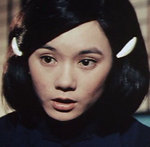
Nora Miao
Nora Miao was actually quite active in the 1970's, but is best known for her appearances in three Bruce Lee movies (being the only actress to kiss Lee on-screen), as well as being in a few of Jackie Chan's early films. Miao began her career working on TV dramas, and wanted to return to them after the "oldschool" kung fu movement died out in the early 1980's. But she seemed to be typecast by most people as "that chick from Bruce Lee movies" and so she didn't find much work. Miao then tried her hand at forming a production company, but after that didn't work out either, she emigrated to Toronto, where she became a host of a popular cooking show on the radio.
Notable movies: The Big Boss, Fist of Fury, The Way of The Dragon
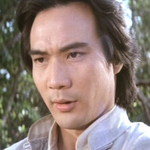
Norman Chu
A mainstay of the Shaw Brothers studio in the late 1970's, Norman Chu personifies the "nasty villain" so many of us know and love from those movies, but showed that he could also play a great hero as well, which made him a very in-demand actor. This continued into the 1980's, where Cho was a favorite of "new wave" directors like Tsui Hark and Ching Siu-Tung. He remained one of the most prolific Hong Kong actors until the mid-1990's, when his output slowed down. Even though he has not officially retired yet, Chu is now just doing one movie every couple of years instead of (seemingly) one every couple of months.
Notable movies: Duel to the Death, 36th Chamber of Shaolin, We're Going to Eat You
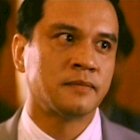
Parkman Wong
Parkman Wong will probably be forever known as "that one guy who's in all of Danny Lee's movies", but he's actually had a pretty varied career, dabbling in everything from acting to producing to writing, and even directing since kicking off his career in 1980 with a supporting role in "The Informer" -- which, perhaps not coincidentally, starred Danny Lee.
Notable movies: City on Fire, The Killer, Dr. Lamb
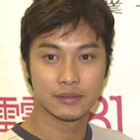
Patrick Tam
Born in 1969, Patrick Tam spent his youth learning acrobatics, but as he grew older became more interested in music. In 1988, he won a TVB competition and Anita Mui took him under her wing to teach him singing. Tam's records brought in different influences, such as American jazz, that didn't fly with the local audience, and so he was dropped from his record contract. After taking a break from the entertainment scene for a few years, Tam decided to try out acting, and found success with 1998's "Beast Cops", which earned him a Hong Kong Film Award. Since then, Tse has divided his time between acting on TV and the jade screen, and has continued to have strong output in both arenas.
Notable movies: Beast Cops, Purple Storm, The Legend of Zu
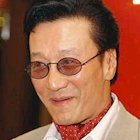
Patrick Tse
In the 1950's, James Dean defined rebellious cool in the States, and Patrick Tse did the same for Hong Kong audiences. Dubbed the "Movie Prince", Tse appeared in well over 100 movies during the 50's and 60's, and was a huge influence on a generation of actors and film-makers, probably most notably John Woo, who based the masterpiece "A Better Tomorrow" on Tse's "Story of a Discharged Prisoner".
In the 1970's, Tse's output slowed down, partly due to the locals' changing tastes, but probably moreso from Tse's notorious libido, which was tabloid fodder and bad publicity for productions. But perhaps because of the success (and also notably tulmultious off-screen "antics") of his son Nicholas, Patrick remains one of the true icons of Hong Kong cinema and still makes the odd appearance in films, most notably in recent years with the mega-hit "Shaolin Soccer".
Notable movies: Challenge of the Gamesters, Story of a Discharged Prisoner, Shaolin Soccer
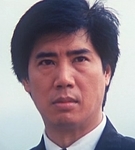
Paul Chu Kong
Paul Chu Kong began acting in 1960 with "The Elevator Murder Case", and appeared in a number of spy and mystery films over the next decade. As studios found themselves primarily making kung fu movies during the 1970's, Chu didn't find himself transitioning well, and didn't appear in too many pictures during the time. However, with the surge of crime dramas in the 1980's, Chu once again found himself as an actor in demand, culminating in his career-defining performance as Sidney in 1989's classic "The Killer". As the Hong Kong film industry's production dovetailed in the early 1990's, Chu took it as a cue to exit from the industry.
Notable movies: The Killer, The Big Heat, Once a Thief
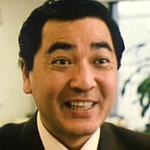
Paul Chun Pui
One of the great character actors in Hong Kong, Paul Chun Pui (who is the brother of Derek Yee and David Chiang) has been working since he was a child with 1949's "Our Husband". Since then, he has appeared in nearly 150 movies, specializing in either playing sleazy villians or bumbling authority figures. Though he has never attained true superstar status, Chun is most definitely one of the mainstays of Hong Kong cinema, and has been recognized by his peers with a Hong Kong Film Award nomination for "Peking Opera Blues" and a HKFA win for "C'est La Vie Mon Cherie".
Notable movies: Fist of Legend, All for the Winner, Peking Opera Blues

Paul Fonoroff
Paul Fonoroff is primarily a Chinese movie scholar (he holds a doctorate from Beijing University) and film historian. He is also a movie reviewer for the South China Morning Post, and has drawn controversy from western fans of Hong Kong films for his seemingly "petty" criticisms such as portraying the police as buffoons and Triads as cool, homophobic/toilet humor, glorified violence, and (most puzzingly to his detractors) cigarette smoking.
However, it should be noted that his reviews are really no more nit-picky than any stuff you'll see on random websites and blogs, and he has done a lot to try and preserve films and memorbilia. At any rate, Fonoroff has appeared in about a dozen movies, most often portraying a gweilo (foreign) sidekick or authority figure.
Notable movies: Fight Back to School II, The Final Option, Once Upon a Time in China II